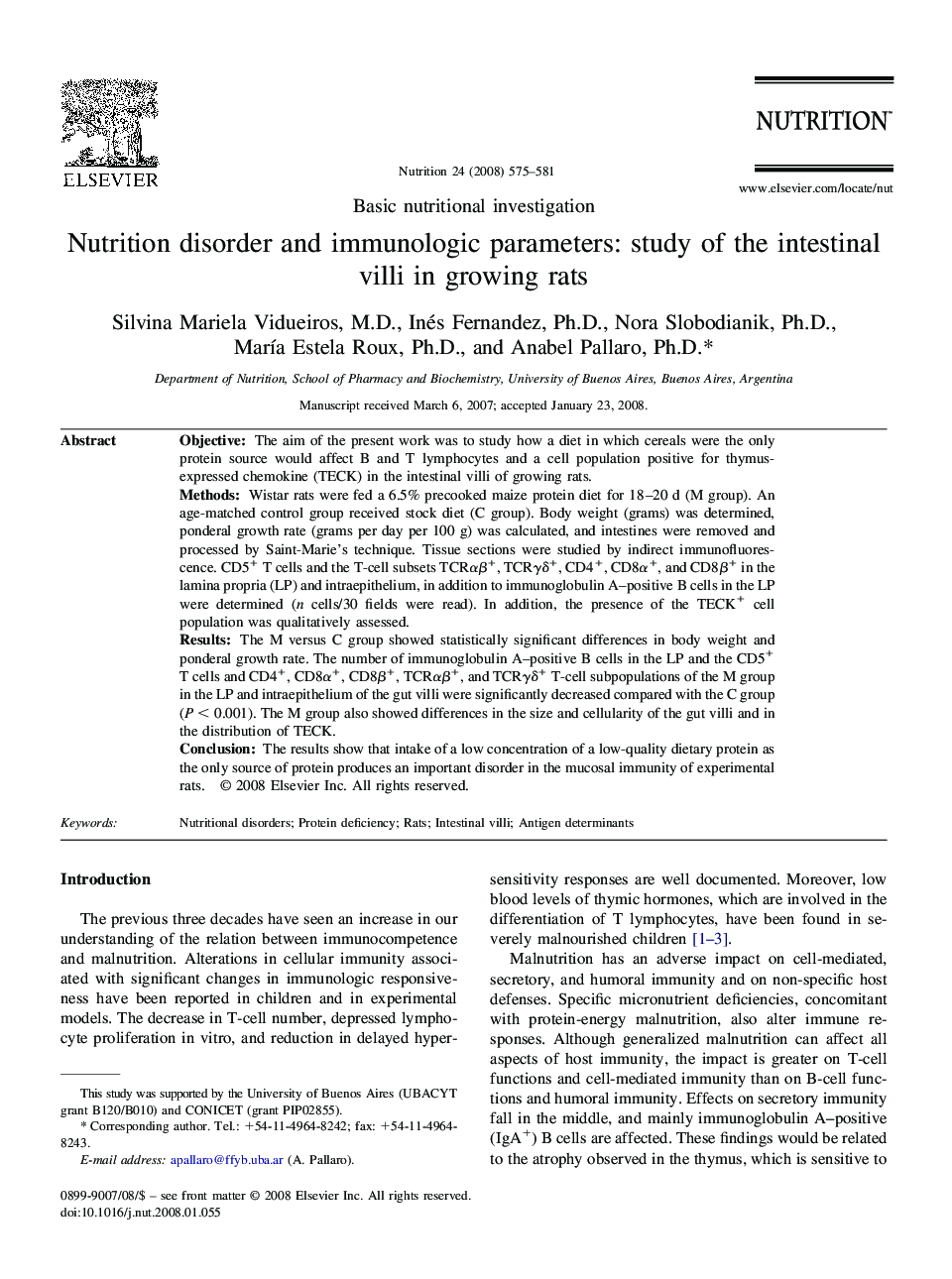| Article ID | Journal | Published Year | Pages | File Type |
|---|---|---|---|---|
| 3277425 | Nutrition | 2008 | 7 Pages |
ObjectiveThe aim of the present work was to study how a diet in which cereals were the only protein source would affect B and T lymphocytes and a cell population positive for thymus-expressed chemokine (TECK) in the intestinal villi of growing rats.MethodsWistar rats were fed a 6.5% precooked maize protein diet for 18–20 d (M group). An age-matched control group received stock diet (C group). Body weight (grams) was determined, ponderal growth rate (grams per day per 100 g) was calculated, and intestines were removed and processed by Saint-Marie's technique. Tissue sections were studied by indirect immunofluorescence. CD5+ T cells and the T-cell subsets TCRαβ+, TCRγδ+, CD4+, CD8α+, and CD8β+ in the lamina propria (LP) and intraepithelium, in addition to immunoglobulin A–positive B cells in the LP were determined (n cells/30 fields were read). In addition, the presence of the TECK+ cell population was qualitatively assessed.ResultsThe M versus C group showed statistically significant differences in body weight and ponderal growth rate. The number of immunoglobulin A–positive B cells in the LP and the CD5+ T cells and CD4+, CD8α+, CD8β+, TCRαβ+, and TCRγδ+ T-cell subpopulations of the M group in the LP and intraepithelium of the gut villi were significantly decreased compared with the C group (P < 0.001). The M group also showed differences in the size and cellularity of the gut villi and in the distribution of TECK.ConclusionThe results show that intake of a low concentration of a low-quality dietary protein as the only source of protein produces an important disorder in the mucosal immunity of experimental rats.
